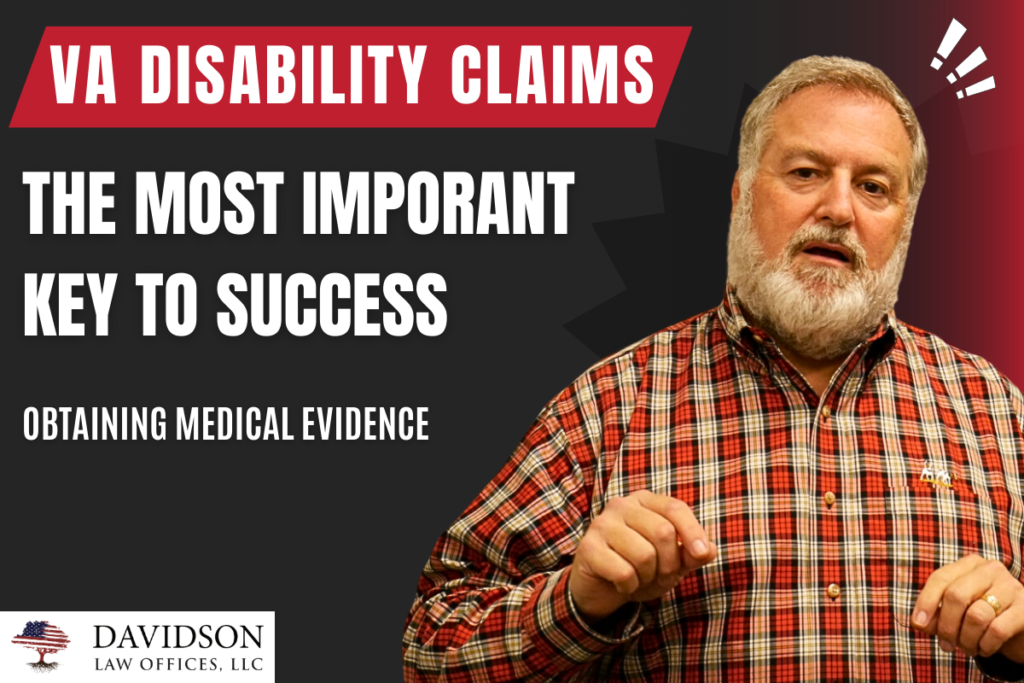A valid medical diagnosis is an essential part of any VA disability claim, but this medical diagnosis can’t be given by anyone. To increase the likelihood of success with your claim, the medical diagnosis needs to be from a credible source. In this blog we’ll explain best practices for obtaining that diagnosis and why you can’t diagnose yourself.
Do You Have an Actual Disability?
The first requirement for a grant of service-connected disability is competent evidence that you have a current disability. If you don’t have a current disability, you can’t get compensation benefits. I’ve talked to many Veterans who claim they were exposed to agent orange or other toxins while in service, but they don’t have any disabilities from that exposure. You can’t get compensation from exposure alone. You must have a medical diagnosis for a disability connected with your service.
What evidence is required to establish the existence of a current disability? In many cases you can submit only buddy statements or self-serving statements to the VA. Although these statements only describe your symptoms and don’t provide an actual medical diagnosis, they are often enough to trigger the VA’s duty to assist you. This means that you can get a free C&P exam to help you obtain that medical diagnosis you need.
Getting a Medical Diagnosis from the Right Doctor
Make sure that the doctor you’re using is licensed and specialized for the condition that you are getting diagnosed. Don’t get a foot doctor to diagnose a heart condition. I also suggest not getting a Physician’s Assistant (PA) to do this. While they are very competent medical professionals, you need a licensed doctor to diagnose your condition for VA purposes.
If you’re claiming PTSD, you need to be especially careful with who you’re using to get your medical diagnosis. Medical doctors generally aren’t qualified to diagnose PTSD because they don’t have the specialized training. If you’re seeking benefits for PTSD, you need to have a psychologist or psychiatrist diagnose your condition.
I had a client that was seeking disability compensation for PTSD, but needed a medical diagnosis for his claim. He was granted a C&P exam by the VA, which was conducted by a PA. The PA completed the disability benefits questionnaire and said that my client didn’t have PTSD.
The problem was that the PA was not qualified to diagnose PTSD. The PA would have had to be under the supervision of a psychiatrist or psychologist to give that medical diagnosis. As a result, we were able to successfully argue the error by the VA here because they didn’t follow their own rules.
If you’re getting a free C&P exam to obtain a medical diagnosis, make sure the person giving the exam is qualified. The VA doesn’t always follow their rules here, so you have to make sure the medical professional they’re using is qualified for the diagnosis you’re seeking. If it’s a PTSD diagnosis you’re seeking, make sure you’re being examined by a licensed psychologist or psychiatrist.
Can You Challenge a Medical Diagnosis?
What happens if you receive a medical diagnosis, but it’s not necessarily favorable for the disability claim you’re trying to submit? You can always challenge the VA’s medical professionals with your own medical evidence. You can challenge with an appeal and submit evidence from other doctors in the field. Just make sure the new opinion is supported by plenty of research and studies that support your claim.
I also recommend using buddy statements when challenging a diagnosis from the VA. These buddy statements don’t diagnose any specific condition, but they do help support your argument. If you’re seeking compensation for PTSD, you might have buddy statements from friends and family that note your frequent outbursts or difficulty in crowded environments. Get as many statements from friends and family that support the new medical diagnosis you obtain.
Winning an appeal against a diagnosis by the VA is not impossible, but it takes a considerable amount of evidence to overturn their medical diagnosis. You need the actual diagnosis by a qualified medical professional in that field, research to support what you and the doctor are claiming, and buddy statements that support your diagnosis.
Contact Us So We Can Help!
If you need assistance with VA disability compensation, complete this form or give us a call at (229) 226-8183. If you’d like to see this blog in video format, you can watch it below. Please be sure to SUBSCRIBE to our YouTube channel and click the bell notification button so that you’re notified each time we publish a new video.

